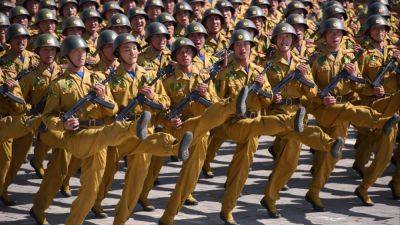ASEAN continues to emerge as a winner of U.S.-China trade tensions, IMF says
The Association of Southeast Asian Nations (ASEAN) has continued to emerge as an economic winner of increasing geopolitical tensions between China and the United States, though risks from fragmentation remain, the International Monetary Fund (IMF) says.
According to the U.N. agency, the region has long benefited from decades of globalization, building strong trade links with China and the United States, the world's two largest economies.
Though U.S.-China tensions have been deteriorating in recent years, ASEAN has adapted and continued to integrate with the global economy, the IMF said in its latest Asia-Pacific Outlook report, released Friday.
"Despite geopolitical tensions, ASEAN has continued to strengthen trade and investment links with both China and the U.S.," the report said.
Data from the IMF showed that since 2018, ASEAN economies have increased their market share of both Chinese and U.S. imports, with the superpowers absorbing a greater share of the region's value added.
Foreign direct investment from both countries has also increased in ASEAN.
"[T]he region has even been able to take advantage of trade diversion opportunities caused by US-China trade tensions," the report added.
Former U.S. President Donald Trump kicked off a trade war with China by placing a series of tariffs on thousands of Chinese imports in 2018 and 2019, prompting retaliation from Beijing. The Biden administration has kept most of those tariffs in place and even set additional levies in May.
Empirical analysis shows that several ASEAN economies have seen exports of products targeted by Chinese or U.S. tariffs grow faster than other exports, the IMF said.
It added that ASEAN has seen exports of these tariffed goods increase to countries outside







